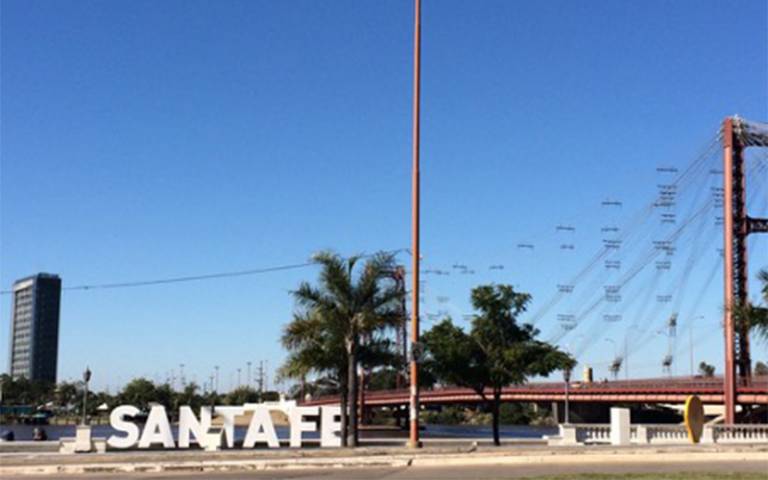DPU PhD candidate successfully defends thesis on understanding disaster risk management
8 April 2020
Congratulations to DPU PhD student, Eva Filippi, who has successfully defended her thesis on understanding disaster risk management as an everyday concept and practice in municipal government policy, planning and management.

In her thesis, which focusses on learning from the experience of Santa Fe, Argentina, with urban flood risk, Eva Filippi argues that the appropriation of the concept of disaster risk management and its translation into everyday work routines across a whole municipality requires thinking through three phases of institutionalisation: emergence, embeddedness and sustained change. In the successful defence of this argument at her recent viva, she considered the incorporation of disaster risk management processes in the Municipality of Santa Fe, Argentina. In particular, she distinguishes her approach from conventional mainstreaming approaches that tend to rely on sectoral approximations and rather focus on the ‘before, during and after-event rationale’.
Her research enhances our understanding of the conditions that can enable and sustain urban disaster risk management (DRM) as a never-ending transformative process from the perspective of municipal governments as the leading organisations at city scale. Addressing DRM as an emerging and cross-cutting policy paradigm in medium-sized cities in low and middle-income countries, it explores how the municipal government of Santa Fe has appropriated the concept of gestión de riesgo and incorporated it into its everyday work, while continuously accommodating to the dynamic conditions that define urban flood risk.
Santa Fe was the first Argentinian municipality to adopt DRM as a policy paradigm. Using an abductive logic of enquiry, she worked with Santa Fe’s municipality over eleven-months using qualitative research methods with a participatory approach. She draws on a broad-based theoretical foundation, building upon the amalgamation of three strands of literature: policy process research, sociological institutionalism and network theory. With these interdisciplinary insights in mind, the institutionalisation of cross-cutting policy paradigms is proposed as a framework to analyse the incorporation of DRM in municipal governments. The framework considers emergence, embeddedness and sustained change as the phases of institutionalisation that unfold within a municipal government and across its relations with other organisations in networked spaces.
The combination of these temporal and organisational perspectives identifies the features of each phase and key departments and networked spaces steering them. Ideas and ways of framing are central in the emergence phase, while securing a delicate balance between the cross-cutting/specific nature of DRM becomes relevant when embedding the new paradigm in the core work of sectoral bureaus. Sustained change is stimulated by ‘satellite offices’ whose linking work across departments sharpens awareness of alternatives for ongoing innovation. Networked spaces, including academia-policy interfaces, participatory spaces with local NGOs and city-to-city networks are woven throughout each phase and leverage the process. This focus on the temporality of phases enriches analyses and shows that the focus on the entire municipal government provides a complementary perspective to sectoral approaches and overarching risk governance frameworks.
 Close
Close

